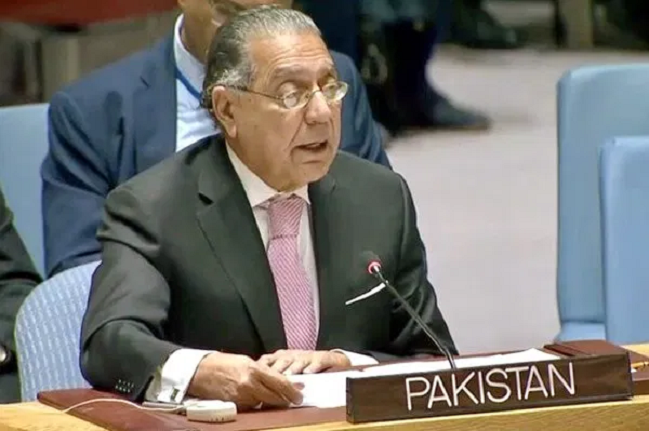
Pakistan’s Ambassador to the United Nations, Munir Akram, apprised UN Secretary-General Antonio Guterres about the worsening human rights situation in Indian Illegally Occupied Jammu and Kashmir (IIOJK) and the concomitant threat to regional peace and security.
Ambassador Akram's resolve came a day before, on Monday (October 18), who called on the UN chief on instructions from Foreign Minister Shah Mahmood Qureshi. UNSG Guterres was also urged to take steps to promote peace in South Asia.
The Pakistani envoy expressed alarm at the continuing extrajudicial killings in staged encounters and fake cordon-and-search operations, as well as arbitrary detentions and crimes against humanity by Indian occupation forces in Kashmir.
"The recent arrests of over 1,400 Kashmiris on false charges in one of the biggest ever crackdowns in the disputed territory was the latest example of India’s state-terrorism," he highlighted.
Read Pakistan condemns India tyranny in IIOJK
He further underlined that such mass-scale repression was reflective of New Delhi’s frustration at its failure to realise its ominous “final solution” for the besieged valley.
Ambassador Akram also drew the attention of the secretary-general towards the Indian home minister’s “callous” statement threatening to conduct so-called “surgical strikes” against Pakistan.
He rejected Indian allegations of “cross border” infiltration and expressed concerns that India may once again conduct a “false flag” operation to justify aggression against Pakistan.
"Pakistan desired peace with India but it would spare no effort to resolutely thwart any aggressive designs," the ambassador remarked.
The ambassador further urged the UNSG to make efforts to avoid the prospects of a deadly conflict between India and Pakistan, lower tensions, and promote peace in South Asia.
Secretary-General Guterres expressed concerns over the worsening situation in IIOJK and promised to make efforts towards de-escalation.


1672385156-0/Andrew-Tate-(1)1672385156-0-165x106.webp)


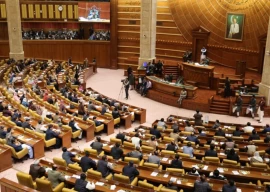

1732012115-0/Untitled-design-(14)1732012115-0-270x192.webp)



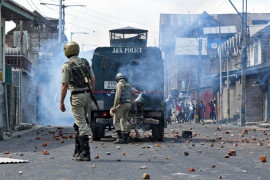
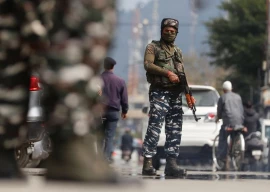
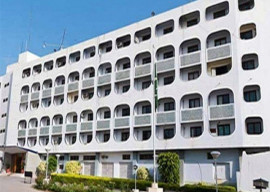






COMMENTS
Comments are moderated and generally will be posted if they are on-topic and not abusive.
For more information, please see our Comments FAQ